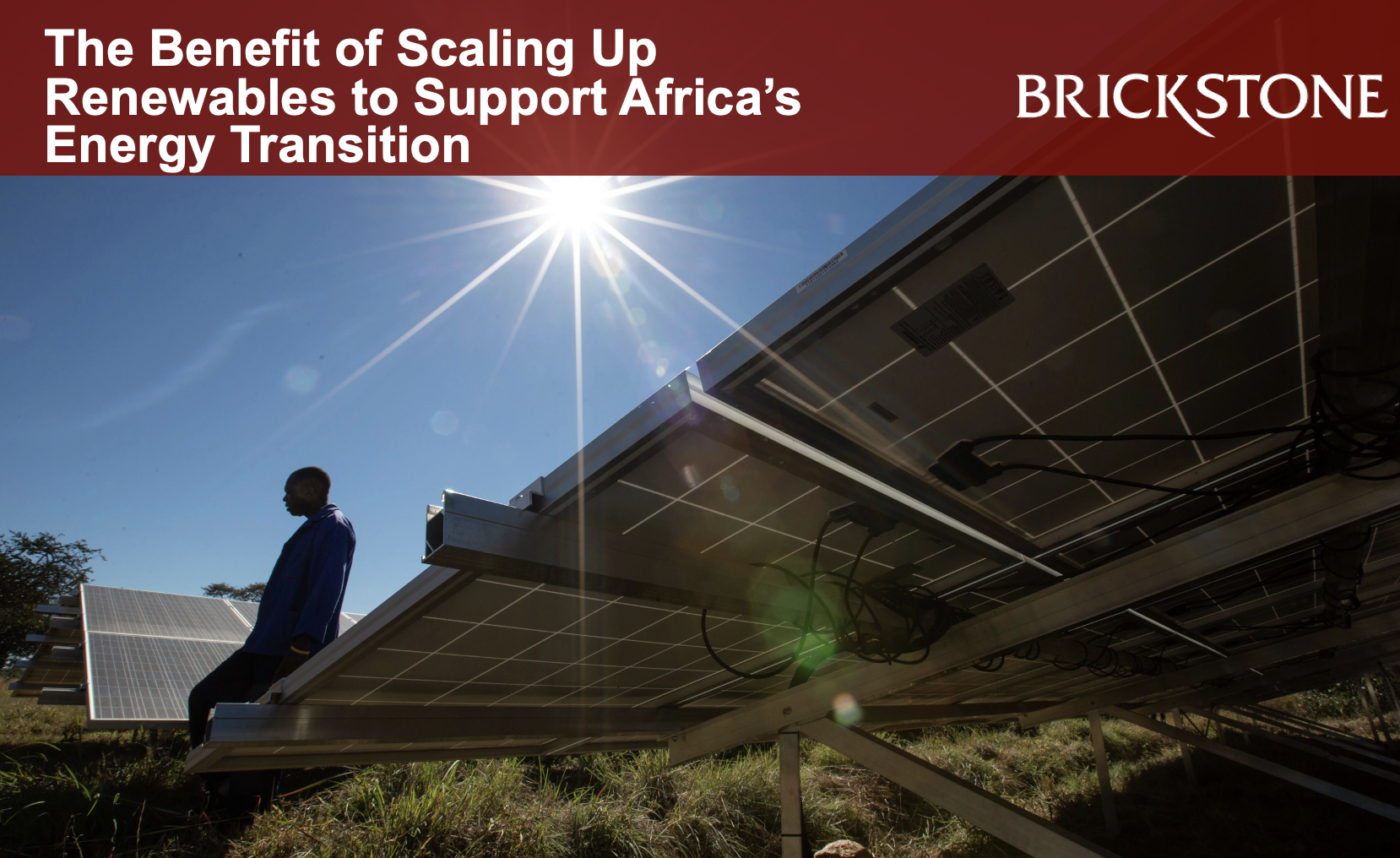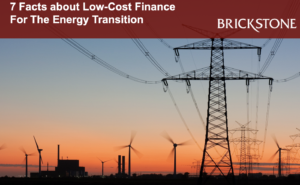The Benefit of Scaling Up Renewables to Support Africa’s Energy Transition
According to Marsh, electrification is at the heart of food security, economic development, education, and healthcare in Africa. However, only eight countries across the continent are currently on track for universal access to electricity, according to the World Bank, predominantly due to a lack of existing grid infrastructure development. While the continent still needs large-scale power projects to meet its energy needs, and challenges exist around the lack of grid infrastructure, many countries have the potential to develop captive and small-scale renewable energy projects.
A combination of government policy, blended financing, and improved technology are necessary to support these projects (for example, solar, wind, and battery power developments), which will be crucial in the continent’s move away from traditional energy sources.
This article by Brickstone Africa reviews Marsh’s publication on the benefit of scaling up renewables to support Africa’s energy transition.
The Advantages of Small-scale Renewables Projects
There are several reasons why many African countries would benefit from the acceleration of small-scale renewables projects:
- Increased access to energy: Electricity access in Sub-Saharan Africa rose from 46% in 2018 to 48% in 2020, but the region’s share of the global access deficit rose from 71% in 2018 to 77% in 2020, according to the World Bank. Where access to energy is limited due to a lack of or weak existing grid infrastructure, community-based renewables projects, such as mini grids or solar-powered projects, provide reliable and sustainable energy sources.
- More affordable energy: Up to 30 million people in Africa who previously enjoyed access to electricity can no longer afford it. The cost-of-living crisis is acute, and typically, the lowest-cost energy source is utilized by most people. Scaling up renewable power projects in communities, by improving the technology that creates and delivers them, will allow people to access affordable energy sources.
- Promote economic growth and stability: The development of small-scale renewables projects will almost certainly generate wider economic development opportunities in Africa, including employment, medical, and educational improvements.
The Challenges of Scaling Up Renewables in Africa
There are nonetheless challenges to scaling up renewables projects across Africa, including ensuring projects are at the same time both affordable and an attractive investment opportunity. The following can help in the financing of a project:
- Government policies that encourage project investment through subsidies to developers, and contribution to the tariff consumers are paying. In Uganda, for example, government policy changed recently, so it contributes 60% of the tariff, to drive affordability for the end user.
- Private and concessional funding to develop energy systems, such as captive power projects, for industrial customers across Africa.
- More seamless and affordable risk transfer solutions and insurance products to mitigate risk of deploying new technology, such as battery energy storage, and scaling up renewables projects in Africa. Effective risk transfer is an essential requirement of project lenders and has enabled many projects to come to fruition. Marsh, for example, is deploying a simplified, low-cost insurance solution for rooftop projects and projects under 5MW in South Africa where insureds are generally required to provide less information than usual and are provided pricing for cover quickly.
With the right investments made alongside strong commitments on the part of governments, consistent policy, and clear regulatory frameworks, Africa can lead the way in the transition to a cleaner, more sustainable energy future.
Read more here.






